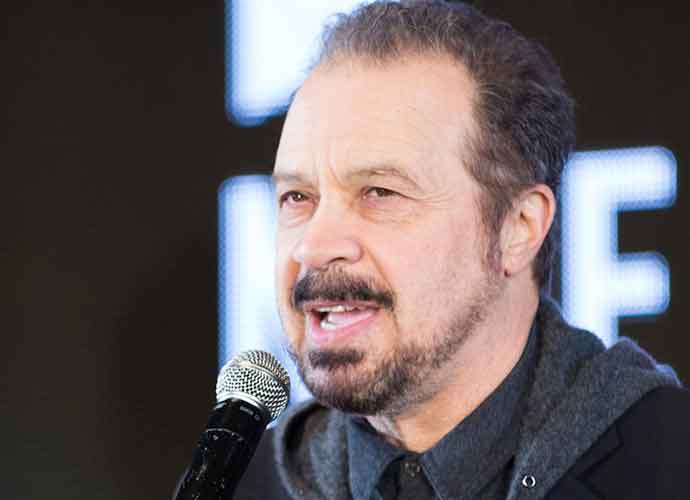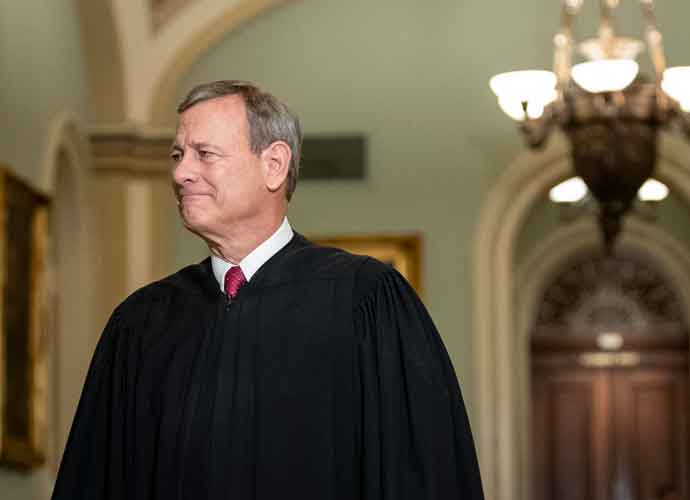VIDEO EXCLUSIVE: Director Ed Zwick On ‘Trial By Fire,’ Capital Punishment
Ed Zwick, the award-nominated director behind films like Legends of the Fall, Glory and The Last Samurai, has a new movie that deals with capital punishment, Trial by Fire.
The 66-year-old filmmaker talked to uInterview exclusively about the film, which is based on a true story of a prison inmate on death row who was wrongly convicted of a triple homicide in Texas during the early 1990s. The movie stars Academy Award nominee Laura Dern and Jack O’Connell.
Zwick said he discovered the story surrounding the inmate, Cameron Todd Willingham — played by O’Connell — in a New Yorker magazine article of the same name in 2009.
“It had within it a very interesting narrative shape,” Zwick said of the story. “We as we read it find [Willingham] abhorrent and we think that he’s guilty. As it’s revealed layer by layer that he’s not, I felt that I could give the audience that same experience, that the audience would be complicit in condemning him.”
Zwick added he was captivated by the relationship between Willingham and Dern’s character Elizabeth Gilbert, who attempts to help him clear his name and prove his innocence.
50 CELEBRITIES WHO DIED IN 2018 – TRIBUTE SLIDESHOW
The director noted that the fact the pair met “at random” in such heartbreaking circumstances is a strong commentary on what often happens in real life.
“It’s all about finding the people who can inhabit those words,” said Zwick of the casting process for the film before praising Dern. “Laura, her work speaks for itself but I knew certain things about her. I knew her to be an activist, to be an extraordinary empath, and a deep listener. I felt she had all those qualities.”
Zwick said he had seen O’Connell’s past work in the 28-year-old actor’s native England. O’Connell is known for his role in the British series Skins.
“I knew him to be exceedingly courageous as an actor to not worry about an audience’s sympathies, to not seem to be protecting himself but rather revealing himself,” he said of O’Connell.
Zwick explained that although he began working on the film ten years ago, he is glad it was not completed until now because the debate surrounding the fairness of the American criminal justice system wasn’t as robust as it is today.
“I just hope that this becomes another voice to put a human face on, for people to look and understand what these abuses [of power and of human rights] can create,” he said of the film’s message. He pointed to a particularly “moving” scene where Dern’s character is left pondering a question O’Connell’s character asks her about what God thinks of his situation.
Full interview transcript:
Q: How did you transform the magazine story into a movie?
A: It had within it a very interesting narrative shape. As we read it and I absolutely adhere to this, we find him abhorrent and we find we think that he’s guilty. And as it’s revealed layer by layer that he’s not, I felt that I could have given the audience that same experience that the audience would be complicit in condemning him. You try to adhere to those facts, but most of all I thought it was an opportunity to describe this remarkable relationship between these two people and an unexpected deeply meaningful and profound relationship that happens almost at random and that to me is a metaphor, that’s a metaphor for a lot of things. We have these encounters with people who change our lives, we don’t know who that’s going to be and particularly in circumstances that are cruel and you might otherwise think would be impossible to have that happen within, the fact that they find meaning in the middle of the circumstance, I found to be very powerful.
Q: How important were Jack and Laura?
A: Look, I mean most important is a screenplay and then it’s casting and after that the rest sort of falls down like chips, it’s all about finding the people who can inhabit those words. Laura, her work speaks for itself, but I knew certain things about her, I knew her to be an activist, I knew her to be an extraordinary empath, a deep listener. I felt she had all those qualities, she’s the exact same age as Elizabeth was at the time and Jack I’d seen his work in England, I knew him to be exceedingly courageous as an actor to not worry about an audience’s sympathies, to not seem to be protecting himself, but rather revealing himself and there’s great confidence in believing that will yield a
performance and it did.
Q: What’s the message you’re trying to send with the film?
A: Well it’s one thing, we began working on it ten years ago, I think right now it falls smack in the middle of a time within this country where the debate on the criminal justice system is rising finally to the surface so I just hope that like this just becomes another voice, it puts a human face on it for people to look and understand just what these abuses can create now.
Q: What’s the most difficult moment to film?
A: Well not difficult but really moving to me, when suddenly out of this movie when he says you know ‘what do you think you know God thinks about all of this,’ and Laura has this lovely moment when I think she asks herself the question and to my mind, it’s the actress and the character really searching in this way that’s very quiet but very powerful.
RELATED ARTICLES
Get the most-revealing celebrity conversations with the uInterview podcast!









Leave a comment